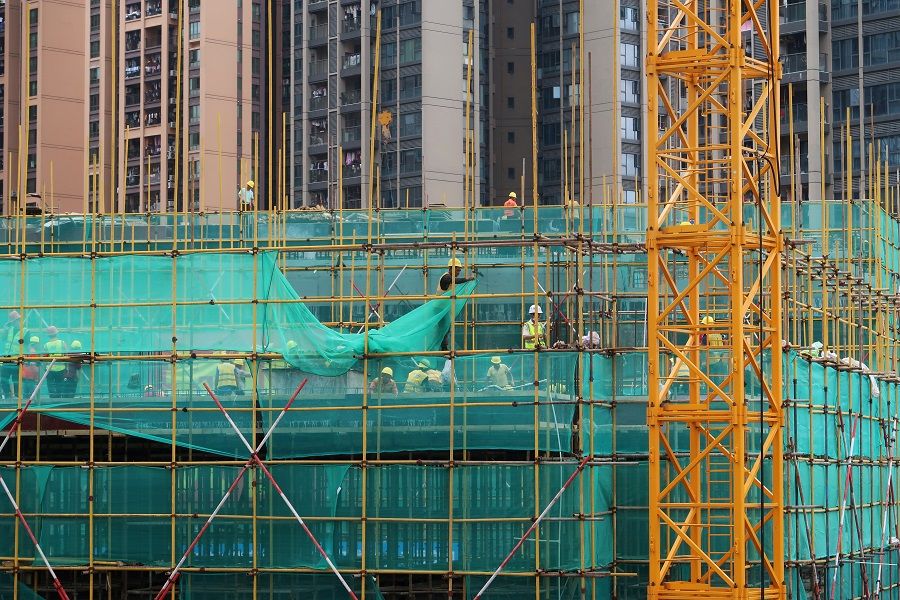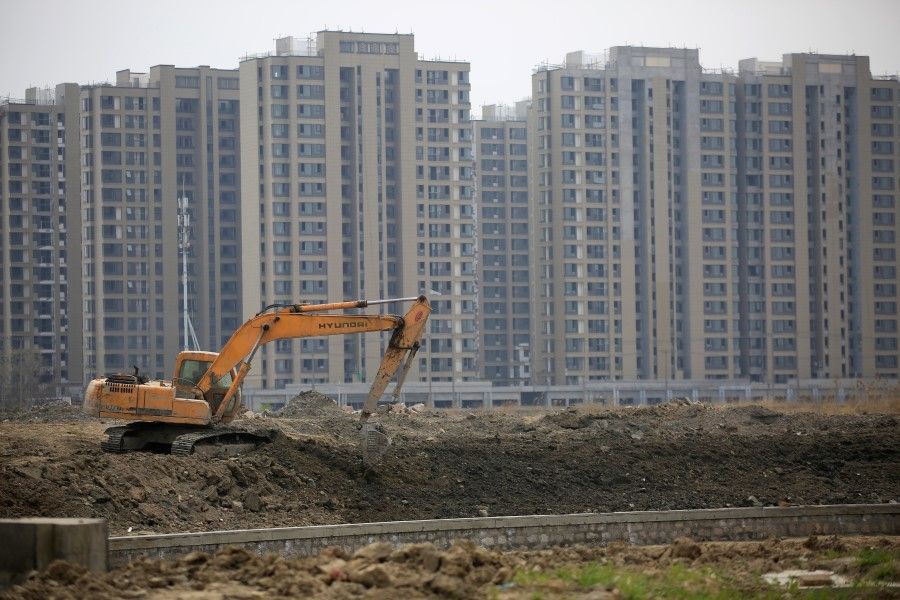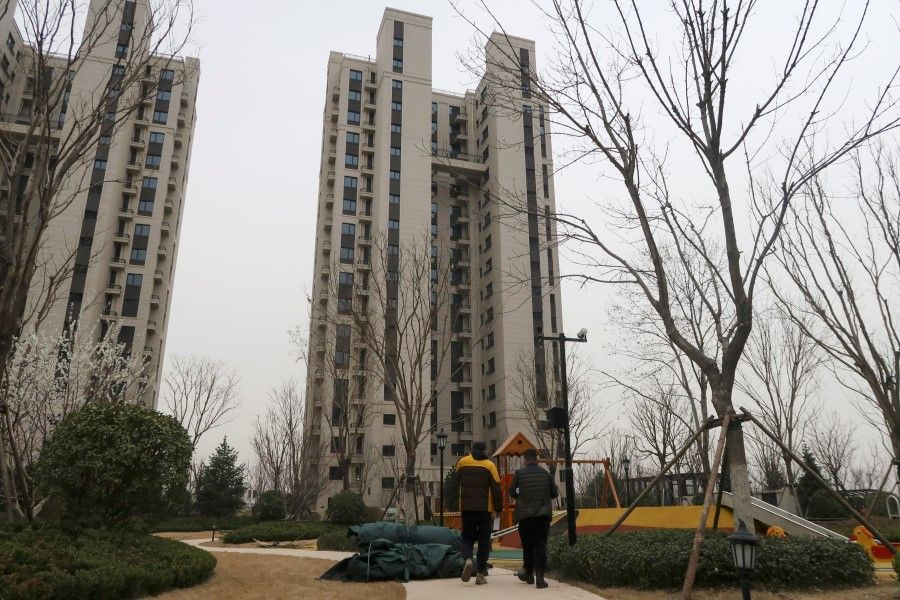China's rising property prices have serious social consequences

Recently, a flurry of policies have been put in place to regulate the property market in mainland China. At a rough estimate, more than 150 property market regulation policies have been introduced since 2021. The perceptions and assessments of higher-ups have more than a little to do with these frequent updates.
At a State Council Information Office press conference held on 2 March, chairman of the China Banking and Insurance Regulatory Commission and party secretary of the People's Bank of China Guo Shuqing said that many people buy homes "not for living in but for investment or speculation", which is a "very dangerous" thing to do. Prior to this, Guo had already mentioned that real estate is the "biggest grey rhino" in terms of financial risks in China's current phase of development.
... if a typical couple wanted to buy a house, they would have to empty six wallets
High property prices have dangerous side effects
I completely agree with Guo's assessment. Over the past few years, I have often said that the current real estate bubble is the biggest hidden danger threatening China's economic and social development. As Guo has repeatedly mentioned, many people are already aware that a real estate bubble might trigger an economic crisis. But the problem is, the reality of such a scenario could be far worse than envisaged.
In April 2018, renowned Chinese economist Fan Gang put forth the "six wallet theory" in response to a question from the audience in a CCTV2 TV programme (大讲堂). In a nutshell, according to this theory, if a typical couple wanted to buy a house, they would have to empty six wallets - that is, the kitties of their respective parents and grandparents besides their own. And this is just to pay for the down payment of the apartment! Firstly, this implies that high property prices have a "crowding out effect" on people's ability to consume, which can be further categorised as three types of consumption behaviours: consumption for the purpose of survival, enrichment and enjoyment.

Driving down second-order consumption and entrepreneurship
At present, the biggest problem with China's economy is the lack of domestic consumption. And this is mainly reflected in their lack of consumption for the purpose of enrichment and enjoyment. Imagine this: the savings in six wallets within an extended family have already been spent on the down payment of an apartment and the hefty monthly instalments thereafter. Thus, apart from spending to fulfil their basic needs, how much income do these families have left to spend on enrichment and enjoyment? Needless to say, this is clearly a bane for the "domestic circulation" of China's economy.
Apart from having a "crowding out effect" on people's consumption capacity, high property prices also crowd out entrepreneurship. As a matter of fact, young people are always curious and have a lot of imagination and great ideas for problem-solving. In fact, the World Intellectual Property Organization (WIPO) has organised programmes for young people to unleash their creativity and to promote social development.
But as I mentioned earlier, the down payment of an apartment can amount to millions of RMB. This amount of money could have been used to realise the entrepreneurial dreams of passionate youths instead. Unfortunately, because they have to pay for the down payment of their property and the endless monthly instalments following that, their startup fund is gone, just like that.
For the comparative returns, buying a property is better than slogging hard - that is what many Chinese think now.

Inculcating the wrong values
Besides, rising property prices would result in rising rental costs for business operators. UK political economist David Ricardo once said that stimulating productivity requires capital accumulation, the source of which comes from net income. And what hinders capital accumulation is the use of net income for unproductive consumption, such as rent and taxes. Many business operators are in fact working to pay their landlords and hence have failed to achieve capital accumulation. So how are they to grow their social investment and productivity?
More importantly, from a national perspective, one must not overlook the impact of a high-price-induced property bubble on warping people's values. The "crowding out effect" in this instance would be prolonged and be more pronounced than that for consumption capacity and entrepreneurship. It is completely possible that the price of a unit goes up by millions of dollars or 70% to 80% in a year. For the comparative returns, buying a property is better than slogging hard - that is what many Chinese think now.
It is especially important to find ways to encourage couples to have children; unfortunately, high property prices has become a major inhibiting factor.

In fact, this also applies to companies. If benefits from the financial sector are far greater than their main industry, who would be serious about regular operations including research and development? And with that, a worrying scene naturally emerges, where on a microeconomic level, companies become too financial - that is, non-financial companies increase investments in financial assets, and reduce productive investments. And the result will be a shift from the real economy to the financial economy.
Impact on low birth rates
Nor can we ignore the damage brought about by society's low desire to have children, due to high property prices. According to China's 2020 population report, China faces a demographic crisis in which the total population is about to peak and will shrink sharply in the long run, as well as a structural crisis because of an ageing population and a declining birth rate. It is especially important to find ways to encourage couples to have children; unfortunately, high property prices has become a major inhibiting factor.
Researcher Ge Yuhao of the Renmin University of China studied the effect of property prices on family planning decisions, based on figures of a 2014 tracking study.

Ge's study found that: one, property prices have a significant negative impact on having children - for every 1000 RMB increase in property prices, the probability of having one child goes down by 1.8% to 2.9%, while the probability of having two children goes down by 2.4% to 8.8%; two, property prices delays the age where women have their first child - for every 1000 RMB increase in property prices, the age where they have their first child goes up by 0.14 to 0.26 years; three, rising property prices have a theoretical "crowding out effect" on a couple's decision to have a child.
Ge's paper concludes that China's falling birth rate is related to rising property prices, so much so that some interviewees feel that "high property prices are the best contraceptive".
